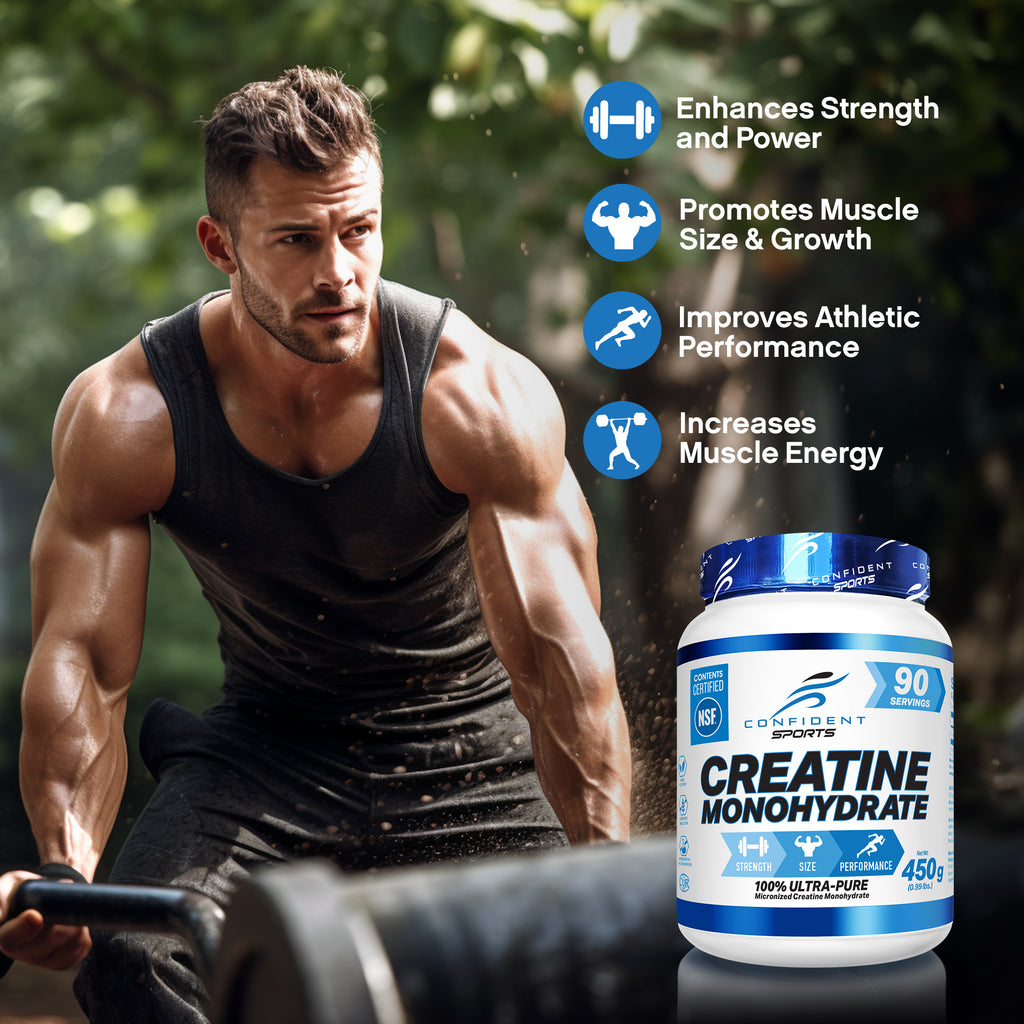7 Easy Facts About Creatine Monohydrate Explained
Table of ContentsThe Ultimate Guide To Creatine MonohydrateThe Best Strategy To Use For Creatine MonohydrateAbout Creatine Monohydrate
The authors recognize a risk of prejudice with the research study designs due to a demand for more clarity over randomization with virtually all research studies consisted of. Only 3 of the nineteen research studies thoroughly described the evaluation of VO2 max.
This differs from athlete to professional athlete. If weight gain through fluid retention is a concern, stop taking creatine 1-2 weeks before competing to offset liquid retention while retaining boosted creatine shops. Some people experience stomach pain when taking creatine, such as bloating, cramping, or looseness of the bowels. It is very important to keep in mind that not everyone experiences intestinal distress while taking creatine, and it can usually be managed by changing the dose or taking it with dishes, as described by the International Society of Sports Nutrition.
It's advised to use it in powder form. Issues regarding the long-lasting results of creatine monohydrate supplementation on renal (kidney) function have been increased. Research studies done by the International Culture of Sports Nutrition and Sports Medicine program that short-term and long-term use of creatine monohydrate within suggested does doesn't risk renal function in healthy individuals.
Not known Factual Statements About Creatine Monohydrate
None of the research studies examined triathletes. The negative impacts reported in the studies associated with weight gain. As stated, a lot of the studies made use of a higher-dose loading procedure (20g+/ day) in a short duration that could be offset and avoided through a lower dose (such as 5g/day) for an extended duration.

Let's look at the primary advantages of creatine monohydrate. There is strong, reliable research study revealing that creatine boosts health.
et al. (2008, July). Laying to rest the myth of creatine supplementation causing muscle mass pains and dehydration. Recovered from https://pubmed.ncbi.nlm.nih.gov/18184753/Eventbrite Record.(2014). Endurance Sports Individual Study. Retrieved from https://eventbrite-s3.s3.amazonaws.com/marketing/britepapers/Endurance_Report_Survey.pdf!.?.!Fernndez-Landa, J. et al.(2023, May). Impacts of Creatine Monohydrate on Stamina Efficiency in an Educated Populace: A Systematic Review and Meta-analysis. Beloved Reader: Creatine is an organic compound great site that the body relies on for a constant supply of energy to the muscle mass. It is especially helpful during short bursts of intense, anaerobic activity, such as when lifting weights or running a short distance. Creatine is synthesized by the body from a trio of amino acids, mainly by the liver. The compound also is available from dietary sources, generally red meat, fish and shellfish and hen (Creatine Monohydrate). The bulk of creatine is kept in the skeletal muscle mass in a type understood
Fascination About Creatine Monohydrate
as phosphocreatine, or creatine phosphate. A little amount, much less than 5%, is found in the cells of the brain and testes. Creatine aids in the production of adenosine triphosphate, or ATP. Researchers have actually found that when somebody takes creatine supplements while engaged in a program of resistance training, such as weight-lifting, it can help to develop lean body mass. Additional researches into the prospective health and wellness benefits of creatine supplements suggest it might improve particular blood lipid levels, help in keeping skin flexible and healthy and balanced, aid in some signs and symptoms of Parkinson's disease and rate recovery from muscular tissue overuse and fatigue. A healthy individual with a balanced diet plan that consists of red meat, hen and seafood will certainly get an appropriate supply of creatine. Nonetheless, research reveals that supplements can be helpful in making athletic gains. Some studies have found that utilizing a creatine address supplement can aid build muscle mass and enhance toughness. When taken in large quantities, some individuals do report experiencing stomach problems. As with any type of nutritional supplement, it is necessary to speak with your healthcare supplier prior to including creatine to your day-to-day routine. There are many kinds of creatine supplements, which are available in a wide variety of does. Your doctor will help you evaluate your goals and can direct you in selecting the appropriate supplement for your demands.(Send your inquiries to [e-mail shielded], or create: Ask the Medical professionals, c/o UCLA Health Your Domain Name Sciences Media Relations, 10960 Wilshire Blvd., Suite 1955, Los Angeles, CA, 90024. Countless people take multivitamins daily, despite mountains of evidence revealing they do not boost health and wellness significantly. Many would be better off taking creatine monohydrate. Yes, creatine is a health supplement. Lots of people, around 69%, are in fact creatine deficient. Even if they never ever raised a weights, they 'd still benefit from creatine supplements.